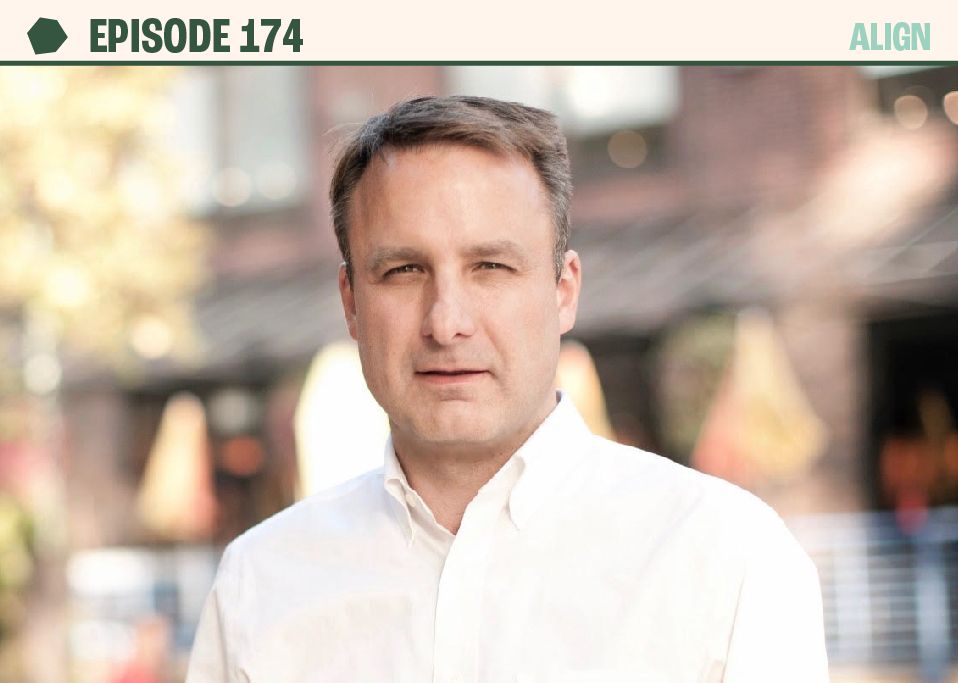In Episode #175, environmental scientist Nicholas Carter returns to give us an update on the health of our planet, explain what COP26 is, and suggest what we may actually need to consider if we are going to create a brighter future for humanity. He poses the question, what if tackling the world’s biggest problem – climate change – is not actually the world’s biggest problem? What if solving happiness is? And what if we could create a healthier planet by restoring happiness?
For more from Nicholas Carter, see Episodes #104, #111, #116, #136, and #230.
The best way to support the show is to use the products and services offered by our sponsors. To check them out, and enjoy great savings, visit theproof.com/friends.
Enjoy, friends.
Simon
Additional resources:
- World Resources Institute article, ‘Half a Degree and a World Apart: The Difference in Climate Impacts Between 1.5˚C and 2˚C of Warming’: https://www.wri.org/insights/half-degree-and-world-apart-difference-climate-impacts-between-15c-and-2c-warming
- Animal agriculture is the predominant source of methane, accounting for roughly 32% of human-caused methane emissions: https://www.unep.org/news-and-stories/story/methane-emissions-are-driving-climate-change-heres-how-reduce-them
- Thirty percent of historical cumulative CO₂ emissions are from land-use change. If the starting point is 1750 or earlier, this share just goes up (2020 Global Carbon Budget: https://essd.copernicus.org/articles/12/3269/2020/, https://ourworldindata.org/carbon-opportunity-costs-food
- Wiedmann, T., Lenzen, M., Keyßer, L.T. et al., ‘Scientists’ warning on affluence’: https://www.nature.com/articles/s41467-020-16941-y?fbclid=IwAR0AG6Lz_CcR2XY0uxVvKNmjnlWP0YLXl6iBcUfl8gcZmTjR7-ZVb3W3oes#citeas
- Jason Hickel (2019), ‘Is it possible to achieve a good life for all within planetary boundaries?’: https://www.tandfonline.com/doi/abs/10.1080/01436597.2018.1535895
- O’Neill et al. (2018), ‘A good life for all within planetary boundaries’: https://www.nature.com/articles/s41893-018-0021-4
- ‘Is Green Growth Possible?’: https://www.tandfonline.com/doi/abs/10.1080/13563467.2019.1598964?journalCode=cnpe20
- Jason Hickel (2021), ‘What does degrowth mean? A few points of clarification’: https://www.tandfonline.com/doi/full/10.1080/14747731.2020.1812222
- In New Zealand, 77–100% of marginal agricultural lands could financially benefit from afforestation West – ‘Promotion of afforestation in New Zealand’s marginal agricultural lands through payments for environmental services’: https://www.sciencedirect.com/science/article/abs/pii/S2212041620301546
- Just under 80% of soy goes to animal agriculture: https://ourworldindata.org/soy
- Rattan Lal, ‘Managing Soils and Ecosystems for Mitigating Anthropogenic Carbon Emissions and Advancing Global Food Security’: https://doi.org/10.1525/bio.2010.60.9.8
- University of Alberta meta-analysis on grazing versus removing grazing – ‘The effects of livestock grazing on biodiversity are multi‐trophic: a meta‐analysis’: https://onlinelibrary.wiley.com/doi/epdf/10.1111/ele.13527
- ‘You want to reduce the carbon footprint of your food? Focus on what you eat, not whether your food is local’: https://ourworldindata.org/food-choice-vs-eating-local







